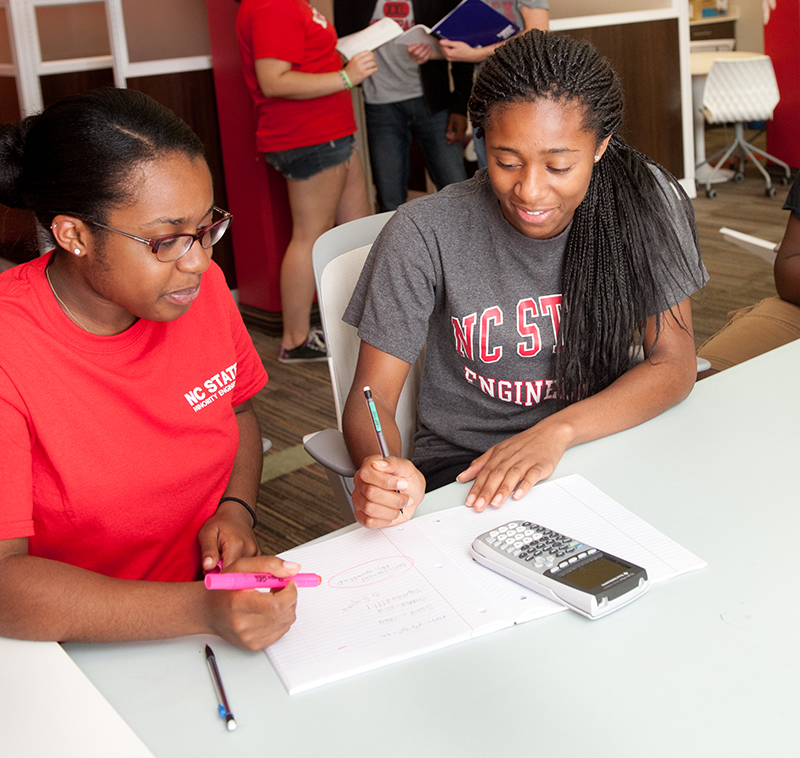Dale Hopkins, mechanical engineering ’84, didn’t take the most traditional path through college.
With an interest in engineering, Hopkins, who is from Gastonia, NC, started at NC State in the fall of 1973. Two years later, he left school due to poor grades.
“My father, as I like to say it, revoked my scholarship on academic grounds,” he laughed.
Hopkins got a job with the City of Raleigh in the utilities department at a wastewater treatment plant, where he stayed for seven years.
“I got to be on the operations and maintenance staff, and I learned a lot from the blue-collar guys who had been working on pumps and electrical systems, everything that goes into a water plant,” he said. “I got all of my certifications there and had gone as far as I could go without a degree.”

Hopkins decided to return to college in 1982. By then, he knew he wanted to be a mechanical engineer, but the program wouldn’t accept him due to his grades. He didn’t let that stop him, getting his advisor to sign off on his mechanical engineering courses and taking 18 credit hours every semester and six credit hours every summer session. By his last semester, he went back to the person who told him he couldn’t get in and showed him his transcript, with all As and Bs in the upper-level mechanical engineering courses.
“I said, ‘The kid who flunked out all those years ago is not the same man standing in front of you today,’” Hopkins said. He was accepted into the program his last semester and graduated with a degree in mechanical engineering.
After graduation, he started doing clerical work writing assembly instructions for circuit boards, which he quickly realized was not his interest. Despite an initial resistance to sales, in 1985 Hopkins ended up working as an HVAC equipment sales representative at LDR Technologies, eventually leading the HVAC digital control division until 2017. His engineering degree helped with understanding fully the thermodynamics and physics behind the equipment he was selling. A career learner, Hopkins took on more of the business side of the company.
“I think the biggest thing you get out of an education is the ability to teach yourself,” he said.
Now retired and working as a consultant, Hopkins has made it a point to give back to NC State, especially wanting to help students who are traditionally underrepresented in engineering.
“There’s a part of me that supports the underdogs, and I do not like to see injustices,” he said. “You’re supposed to leave a place better than you found it … There’s an old adage that everybody in America has equal opportunity — well everybody has an opportunity, but it’s certainly not equal.”
With that in mind, Hopkins decided to make an annual gift to the Women and Minority Engineering Programs (WMEP). He has also established a planned gift to provide scholarships, with preference given to first-generation college students and those who need financial support.
Angelitha Daniel, assistant dean for diversity, equity and inclusion and former director of the Minority Engineering Programs (MEP), and Laura Bottomley, director of Women in Engineering, The Engineering Place and Engineering Education, said that gifts like the one from Hopkins are critical to the success of WMEP.
“Without the support from alumni like Dale Hopkins, we would not be able to recruit, engage and launch our students into their professional careers,” Daniel said. “Mr. Hopkins’ support is a game changer in terms of our holistic support of women and historically underrepresented students in the College of Engineering.”
WMEP is one of the College’s most important student programs. It provides support for current NC State students, as well as for K-12 students, teachers and parents interested in engineering. Bottomley got the WIE Program off the ground in 1997, marking its 25th anniversary this year. The WIE Program later joined forces with MEP to become WMEP.
Thanks to the program’s efforts, the College has made important strides in creating more inclusive and diverse student and faculty bodies. This year, the incoming student class is 33 percent women. NC State is one of the few engineering schools to reach that metric, and Bottomley aims to eventually reach an even split.
The Engineering Place, NC State’s K-20 engineering education program, is focused on outreach to students through school visits and on-campus programs, including summer camps. It has reached more than 1 million students, parents and teachers. The Engineering Place’s goal is to help all students realize their engineering abilities and interests. Outreach to younger students is a key part of helping to ensure a diverse, inclusive
engineering field.
For Hopkins, when he started at NC State, it was easier to get into the engineering program, but harder to stay and keep going through the courses. Now, the script has flipped. Getting in is more competitive than ever, but WMEP and other programs at the College have helped retain students. WMEP aims to meet students where they are, setting them up for success in their rigorous programs and for when they enter the workforce.
“The reason I did it through the College of Engineering and without any other academic qualifications is that … if you’re good enough to get accepted, then you’re good enough,” he said.
This post was originally published in College of Engineering News.